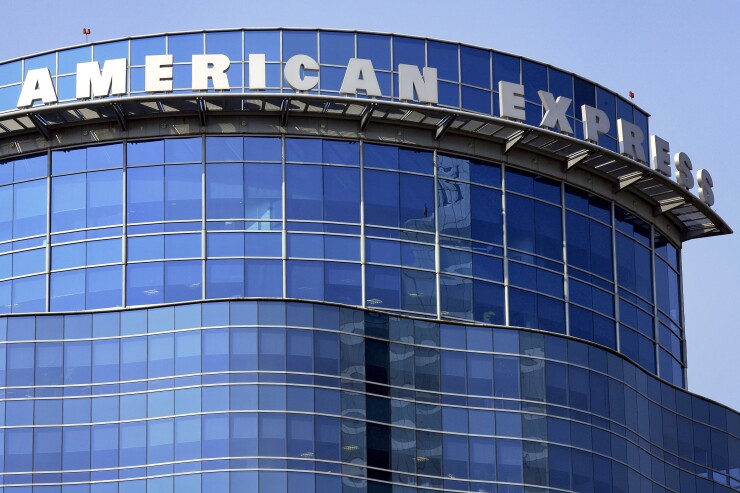The restrictions American Express puts on merchants regarding the use of competing card brands with lower fees came under fire Monday at the Supreme Court, as questions from the court's liberal judges indicated support for consumers.
Several states have filed the
The high court heard about an hour of arguments in an appeal by the states, led by Ohio, of a 2016 ruling by a lower court in New York that cleared American Express of stifling competition through its so-called anti-steering provisions in contracts with merchants, according to a

Even with liberal judges pressing American Express on the practice, the court currently operates with a 5-4 conservative majority. Yet, according to Reuters, Justice Neil Gorsuch was the only conservative whose questions appeared to show support for American Express.
The liberal Elena Kagan said that businesses, such as a local coffee shop, would be able to pass on lower fees to customers without the anti-steering measures, Reuters reported. "That sounds like a market that isn't working like it is supposed to," Kagan told the attorney for American Express, Evan Chesler.
American Express has spent much of the past few years trying to lift a past reputation as a card brand too expensive for many retailers, especially small businesses, to accept on a regular basis. To counter that image, Amex has engaged in the OptBlue program, in which its acquirers can negotiate lower fees for their small-business clients whose transaction values meet certain standards.
American Express believes the legal actions against it are unfair to their cardholders. If a merchant is allowed to give the cardholder an incentive to use a different card, that merchant is being discriminatory toward an Amex cardholder, the card brand contends.
The retail merchant and payments industries have watched many legal battles unfold in the past decade or more, most of them regarding the fees that card brands apply for acquiring banks to put in place for transactions from merchant clients.
The animosity that has built over years behind such a business model led, in part, to the Durbin amendment of the Dodd-Frank law to cap debit card fees at certain levels for merchants, while also giving them more than one option for routing a transaction. Such a clause gives the merchants an ability to choose a cheaper debit routing option to a payment processor, if available.
American Express has said its rules are in place to allow it to better compete against other major card networks. The complaining states, on the other hand, view anti-card-steering rules as a way to block other networks from offering lower fees, thus resulting in retailers raising prices for consumers.





